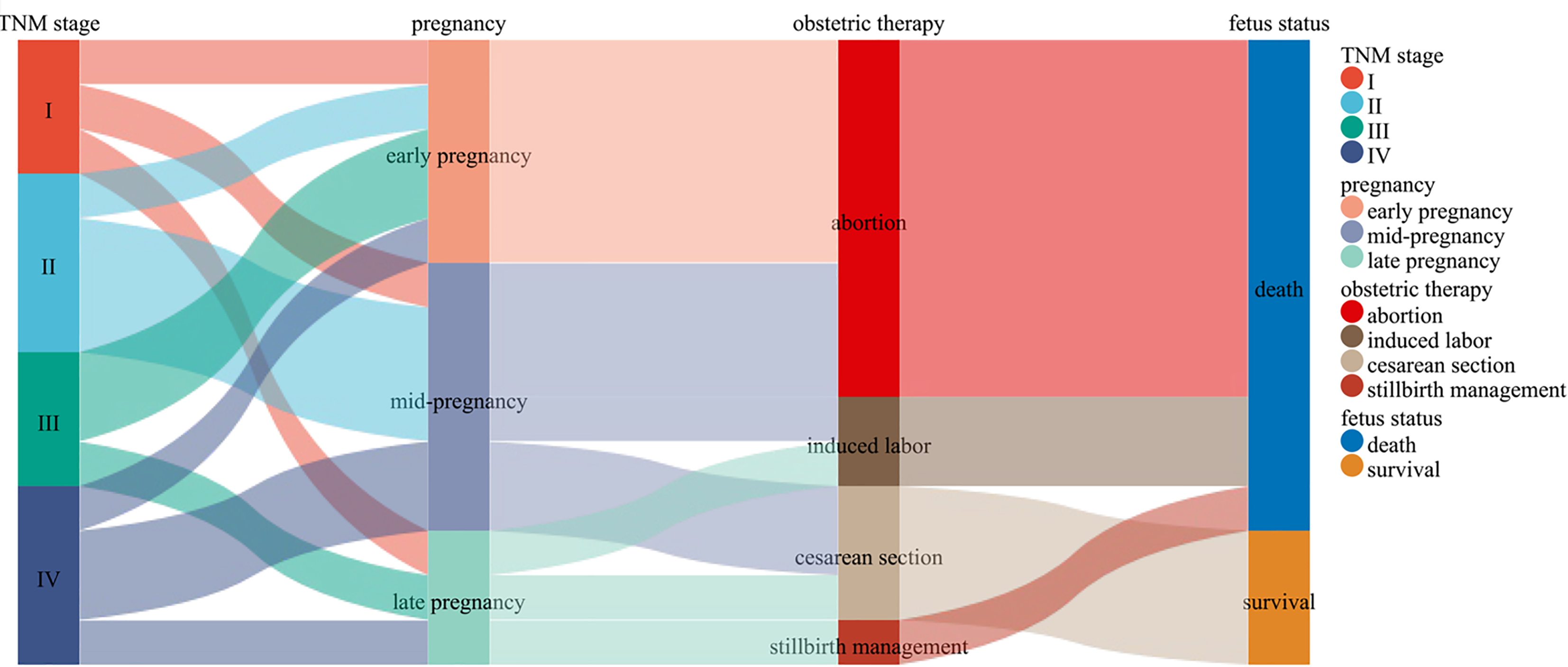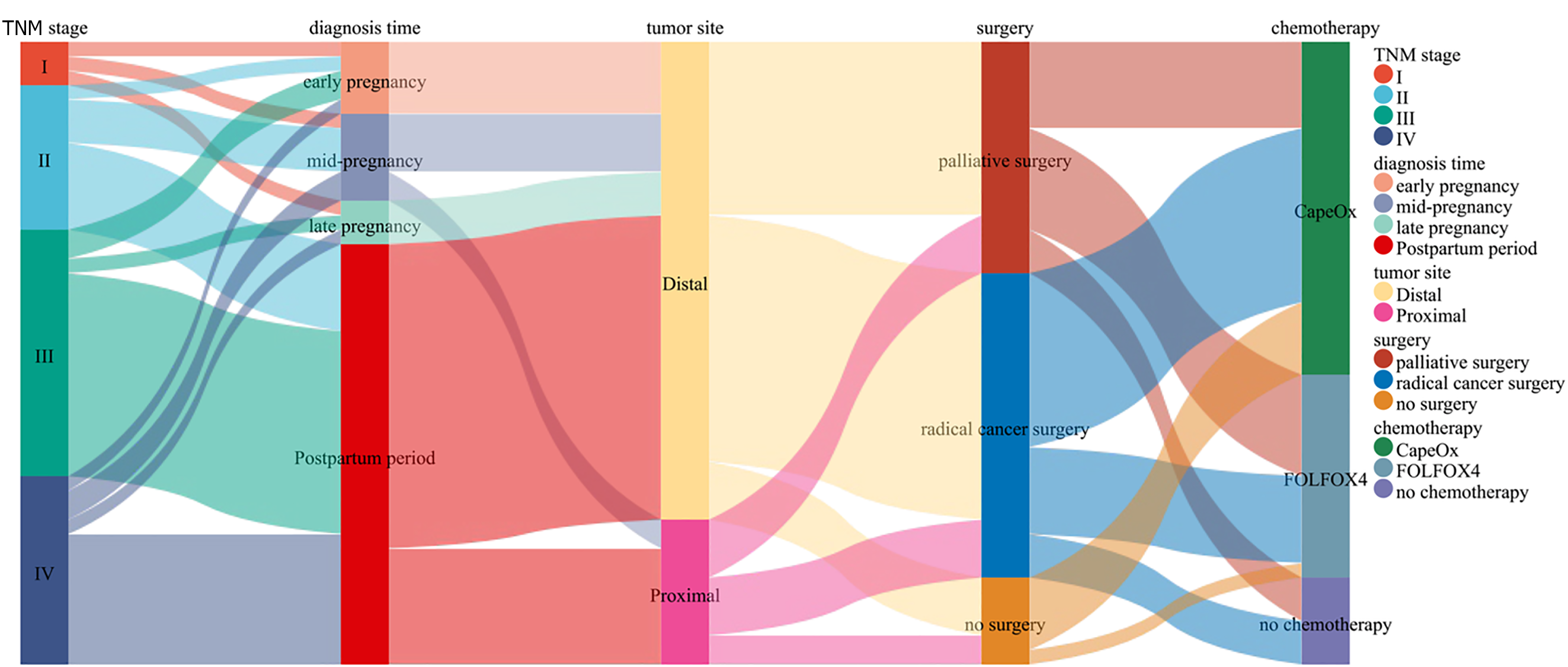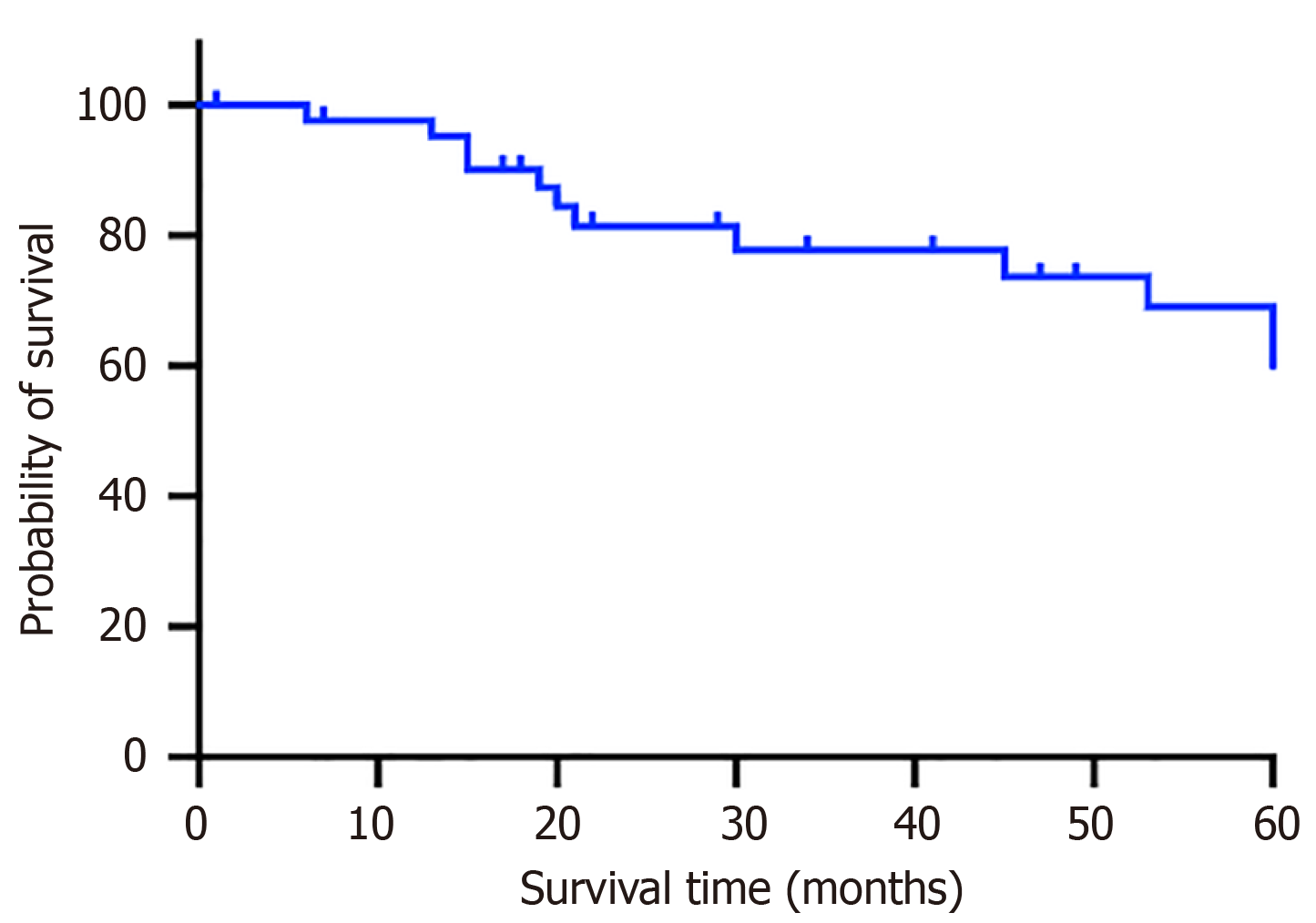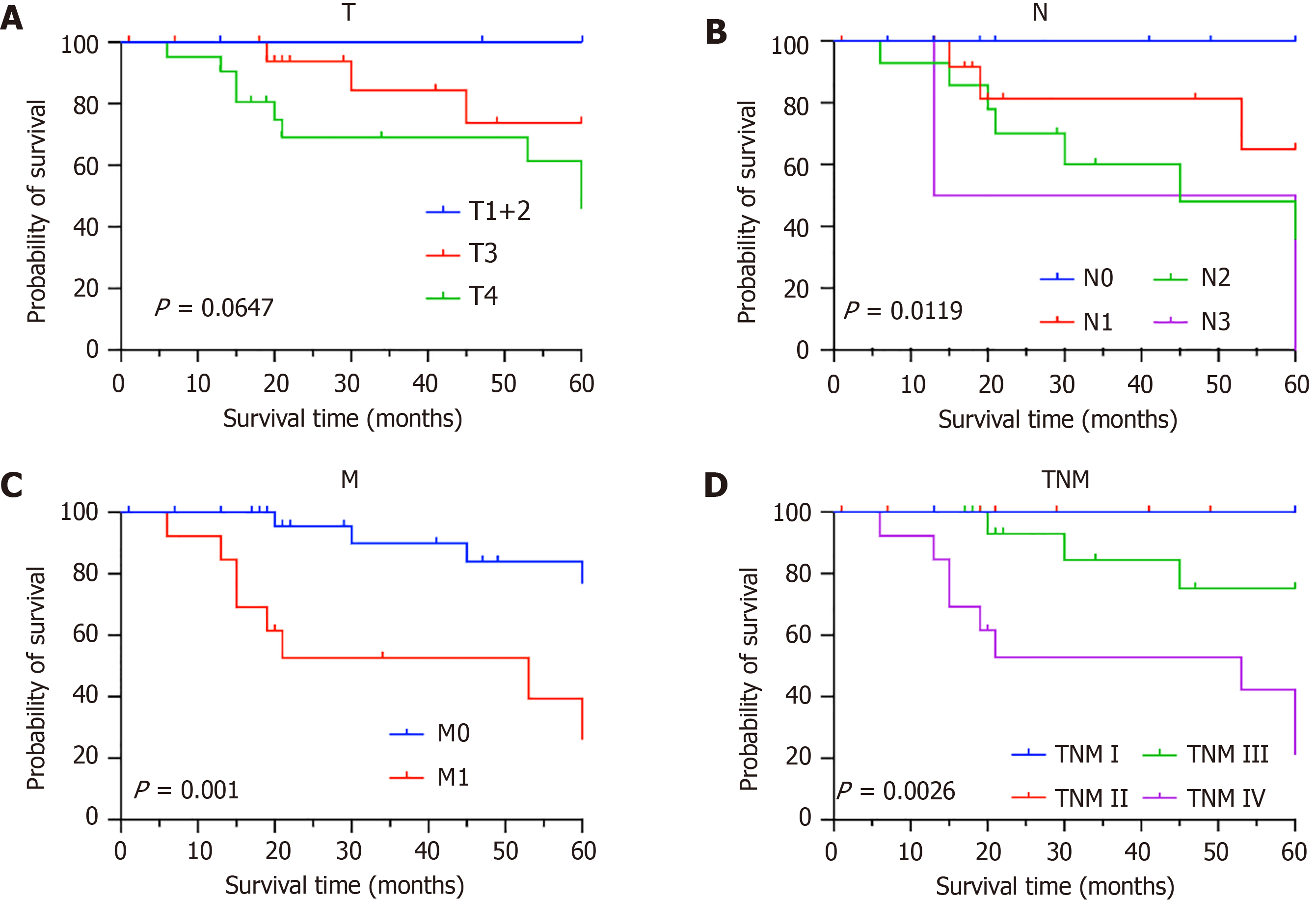Copyright
©The Author(s) 2025.
World J Gastroenterol. May 7, 2025; 31(17): 106508
Published online May 7, 2025. doi: 10.3748/wjg.v31.i17.106508
Published online May 7, 2025. doi: 10.3748/wjg.v31.i17.106508
Figure 1 The relationship between tumor-node-metastasis stage and the time to diagnosis of pregnancy-associated colorectal cancer affects obstetric treatment modalities and fetal prognoses.
TNM: Tumor-node-metastasis.
Figure 2 Treatment strategies.
TNM: Tumor-node-metastasis.
Figure 3 Kaplan-Meier estimates of the overall survival of all pregnancy-associated colorectal cancer patients.
Figure 4 Kaplan-Meier estimates of the overall survival.
A: Type of pathology; B: Grade of differentiation. SRCC: Signet-ring cell carcinoma.
Figure 5 Kaplan-Meier estimates of the overall survival of all pregnancy-associated colorectal cancer patients with different tumor-node-metastasis stages.
A: T; B: N; C: M; D: Tumor-node-metastasis. TNM: Tumor-node-metastasis.
Figure 6 Kaplan-Meier survival estimates for pregnancy-associated colorectal cancer patients diagnosed during pregnancy vs those diagnosed postpartum.
A: 2-year overall survival rates; B: 5-year survival rates.
Figure 7 Kaplan-Meier estimates of the overall survival of pregnancy-associated colorectal cancer patients.
A: Tumor locations; B: < 35-years-old vs ≥ 35-years-old.
Figure 8 Statistical analysis of the initial symptoms of patients.
A: Initial symptoms presented by patients diagnosed with different tumor-node-metastasis stages; B: Initial symptoms exhibited by the patients when the diagnosis was confirmed based on different tumor locations. TNM: Tumor-node-metastasis.
- Citation: Fan LW, Shang C, Lin Q, Tian YT, Xu DK. Clinicopathological characteristics and prognostic outcomes of pregnancy-associated colorectal cancer: A 24-year experience. World J Gastroenterol 2025; 31(17): 106508
- URL: https://www.wjgnet.com/1007-9327/full/v31/i17/106508.htm
- DOI: https://dx.doi.org/10.3748/wjg.v31.i17.106508
















